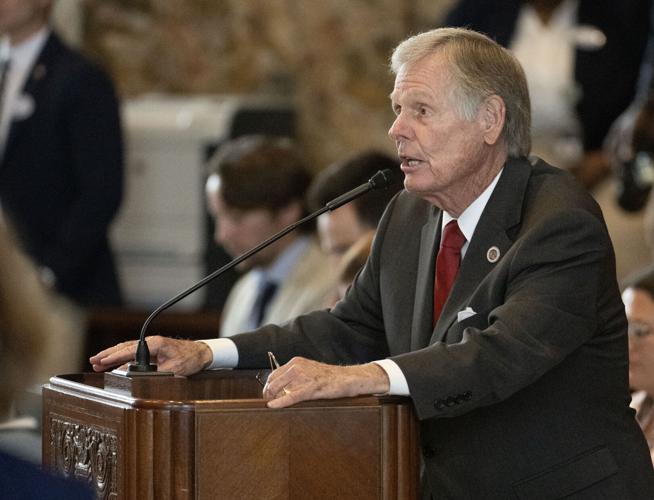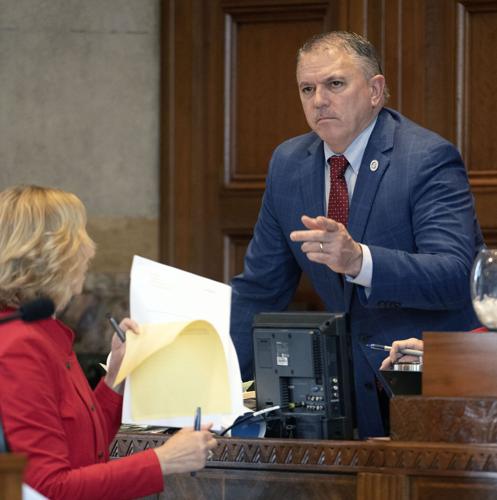March 17 marked a moment of triumph for Louisiana Republicans.
After nearly a half-century of combined service in the House and Senate, state Rep. Francis Thompson of Delhi swapped the D after his name for an R, and handed his new party a veto-proof supermajority in the House. With a two-thirds majority already in place in the Senate, Thompson’s switch, theoretically, gave Republicans the power to set the state’s agenda without worrying too much about the Democrat over in the Governor’s Mansion.
So how’d that work out for them in the session that recently ended?
Judging by the yelling on the floor as adjournment approached and the airing of grievances afterward, not according to heady partisan plans.
The Republicans have the numbers, but that only matters to any majority faction if it speaks with one voice. Instead, we heard a cacophony.
Take this Twitter exchange between Rep. Larry Frieman of Abita Springs and Speaker Pro Tem Tanner Magee of Houma, both Republicans, about the budget that House Speaker Clay Schexnayder (also a Republican, from Gonzales) negotiated behind closed doors then pushed through with little time for members to understand what they were voting on.
Frieman: “To say this day was an embarrassment for our state is an understatement. Basically the Speaker used the Nancy Pelosi approach of you have to pass the bill to find out what’s in it.”
Magee: “You set out to cause havoc, caused havoc, and are now upset about the havoc you caused.”
On the facts, both are correct.
Legislative Republicans united behind some dreadful social issues bills, including three that target transgender people, which Gov. John Bel Edwards likened to anti-civil rights efforts of an earlier era. He has vowed to veto them.
But on the Legislature’s main official task, passing a budget for the fiscal year that begins July 1, the deep divisions among Republicans showed in public.
Edwards called the revenue picture about the best the state has seen, and he, his fellow Democrats in the Legislature and many Republicans saw an opportunity for unprecedented investment to address Louisiana’s many long-simmering problems, including its inadequate infrastructure, as well as education challenges.
But a smallish group of staunch fiscal conservatives sought to impose an arguably irrelevant spending cap passed many years earlier. The standoff echoed the recent fight in Washington over raising the nation’s debt ceiling — except this time, Republicans in leadership of both houses were basically on the same side as the Democrats.
A smaller spending plan did pass the House, although that was likely because many members knew the Senate was there to stop it — and indeed, on the key late session House vote in which the spending-cap hawks needed just a third of members to get their way, they fell well short.
The “havoc” of that showdown, as Magee rightly put it, pushed the budget into a last-minute conference committee that aimed some fire at its own obstructive members.
One casualty was money for bridge project connecting Shreveport and Bossier, which is actually in the district of a Republican who supported leadership on the key cap vote, Thomas Pressly of Shreveport, who complained loudly the next day. The retribution was apparently aimed at members in neighboring districts, including state Rep. Dodie Horton of Haughton, who sent out a long, angry missive about “crooked, lying, power-hungry politicians” — again, the leadership from her own party.
And that was before Edwards weighed in with his own line-item vetoes of pet projects from some of the troublesome members — in effect delivering smaller government to those who say they want it, as he’s been known to say.
There are a few key takeaways from how all this went down.
One is that, despite a decided drift in that direction, Baton Rouge is not Washington — yet. That may be because, proportionally, there are more cool heads at the State Capitol than in Congress. More likely it’s because the decisions that come out of the Legislature hit closer to home for voters, including the allocation of money for locally important projects like bridges.
A second is that, despite those legislative supermajorities, the governor still matters very much here. Unlike the president of the United States, Louisiana governors have that line-veto, and the smart ones make sure members of both parties remember it.
The biggest lesson, though, is one that every majority coalition of either party invariably learns: The more people on your team, the more diverse perspectives and agendas you have to juggle.
Or in this case, the bigger the tent, the bigger the circus.


